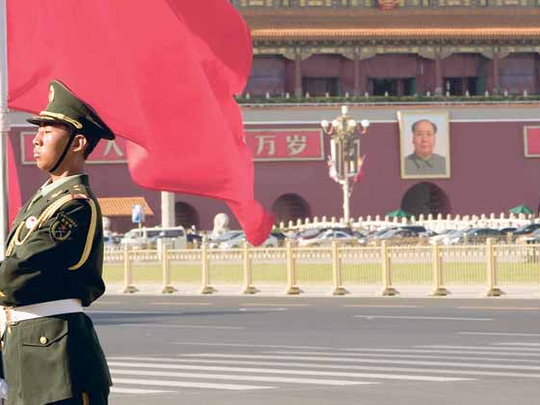
Beijing : China sprang a surprise on global markets on the eve of its New Year's holiday with an increase in banks' reserve requirements, a move that can slow bank lending and clamp down on rising inflation.
Although investors had been expecting the People's Bank of China to push the reserve requirement ratio higher after an increase last month, few thought the second rise would come so soon.
Markets were rattled by fears that the pace of monetary tightening in China would be more aggressive than had been reckoned with, potentially denting global growth.
Investors pulled back from riskier assets, buoying the dollar which rose 0.7 per cent against a basket of currencies. Stocks fell, while European and US bonds jumped.
"The central bank is sending clear messages to banks that it wants more reasonable bank lending and it is paying close attention to inflation," Xie Xuecheng, an economist with Southwest Securities in Beijing, said.
The 50 basis point increase comes into force on February 25.
Inflation slowdown
The surprise was all the greater since China on Thursday had reported an unexpected slowdown in consumer price inflation in January to 1.5 per cent.
Analysts had cautioned that the dip in inflation was only likely to be temporary because of seasonal factors, but markets had still interpreted it as a sign that the central bank could proceed more gradually with its normalisation of monetary conditions after last year's ultra-loose pro-growth policies.
But the January data also showed that, for all the government's insistence that banks control their pace of lending, Beijing was still struggling to rein in credit. Banks lent 1.39 trillion yuan ($203.4 billion), the third-largest monthly total on record.
After yesterday's reserve requirement increase, China's biggest banks will now have to put 16.5 per cent of their deposits on hold at the central bank, crimping their ability to lend.
Huge pressure
"Even though the inflation threat is mild, the central bank has huge pressures to mop up excessive funds from commercial banks to reduce their urge to extend corporate loans," Shi Lei, an analyst at Bank of China in Beijing, said.
"But the hike will still not fundamentally tighten liquidity too much and there will be more reserve ratio hikes upcoming," Shi said.












